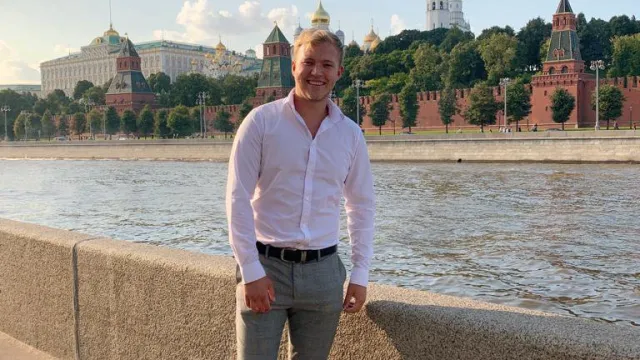Britons in Russia get on perfectly well with each other, as do Russian citizens in the UK. Neither of them perceives each other’s country as a hostile place, bne IntelliNews reports.
The UK Foreign and Commonwealth Office cannot provide figures on exactly how many emigrants stay in Russia, with estimates varying widely since the mid-000s. People stay on different types of visas, making it difficult to count, and a loophole allows Britons to remain registered as “resident in the UK” if they have an address and visit the country “regularly.”
Although most of those interviewed for this article declined to give their names, few feel their lives have changed significantly since February 2022. Those who have lived in Russia for more than a decade describe the current situation as “just another crisis” that will pass.
The vast majority of Britons live in the European third of Russia, predominantly in Moscow. Most have deep ties to Russia, established families and homes. Following the exodus of British companies, many are working in education for Russian companies and often as freelancers in the arts and media.
British teachers and au pairs are now in high demand, especially in terms of language. Au Pairs can earn up to £5,000 a month working for Russia’s wealthiest families, and tutors still fetch decent money from private lessons. Those working in schools are treated better.
We’re not easily replaceable anymore. If they piss me off, the other schools are all looking.
British products are still readily available. For example, Ekaterinburg cosmetics brand Golden Apple has its own line of British cosmetics, as do many small retailers in major cities. Bentley still operates, and Tyrrells Crisps can be found in every middle-class Perekrestok supermarket, as can Scotch whisky.
A big part of doing business in Russia has always been about developing individual relationships. According to one Moscow consultant, those with long-standing business relationships continue to work “pretty much as normal.”
“The English and German guys all tell me they’re doing pretty well.”
However, money remains the biggest problem for Britons. Financial penalties mean that employers are often forced to pay wages in cash or into a trusted person’s bank account unless they are resident in the country or have dual nationality.
Sending money to the UK is extremely difficult but doable. Some people use cryptocurrency, although withdrawals can be problematic. Foreign exchange companies based in Central Asia, China, India and the Middle East help with transfers via Telegram.
Discrimination has become a relic of the past. Part of this may be due to Russia’s fascination with British cultural exports, but some remain cautious in public. One business owner in the Moscow region said:
I never discuss the war with friends and colleagues. I just keep quiet if I see the police.
Russian nationals are also a coveted group in the UK. Russian nationals, numbering around 81,000, were the second largest group granted visas for business, investment and talent in 2022, an increase of more than 200 per cent on last year.
Many of them are software developers and technical professionals who have helped to fill Britain’s domestic talent shortage.
Russians are also among the least discriminated against in Britain. Despite the fact that 80 per cent of the British population supports Ukraine, the Metropolitan Police recorded only five racially or religiously motivated public order offences against Russians in the first two months of the war.
A teaching assistant at Cambridge said:
“First I got some dirty looks [at the start of the war] when people heard I’m from Russia. Now that’s stopped.”
Many people find it quite strange that British people live quite normal lives in Russia or prefer certain things. However, unlike Russians leaving for the UK, it is difficult to find British emigrants who came for political reasons. The war was and remains emotionally painful for most.
One of Britain’s long-standing Moscow correspondents once said:
Russia is a hard habit to quit.
